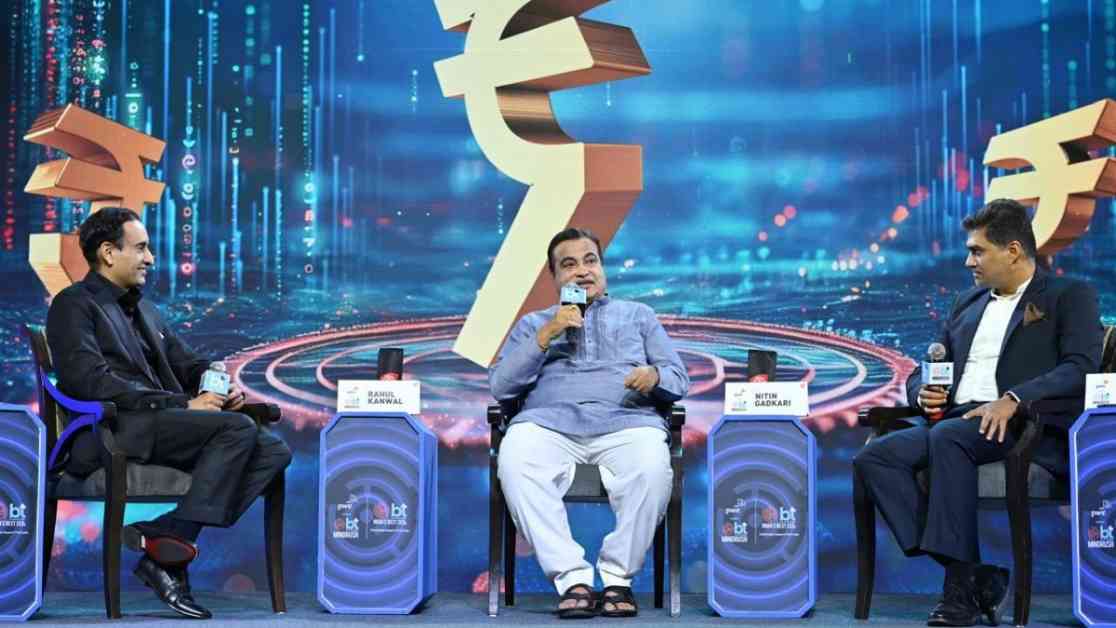Union Minister for Road, Transport, and Highways, Nitin Gadkari, recently made a significant announcement at the BT MindRush 2025 event in Mumbai. He unveiled the government’s plans to introduce a new national toll policy for highways, aiming to provide reasonable concessions to commuters and alleviate the burden of toll charges. This policy, set to be revealed before April 1, is poised to revolutionize the tolling system on national highways, promising a more seamless and affordable experience for road users across the country.
Enhancing Commuter Experience Through Policy Reforms
During his speech, Gadkari emphasized the importance of streamlining toll collection processes to prioritize commuter convenience. By introducing an annual pass system to replace traditional toll collection methods on national highways, the government aims to enhance operational efficiency and simplify the overall toll payment experience for travelers. This strategic move not only reduces the hassle of frequent toll payments but also underscores the government’s commitment to modernizing infrastructure and promoting smoother travel experiences for all.
Additionally, the Ministry of Transport has taken proactive steps to implement an Automatic Number Plate Recognition (ANPR) FASTag System-based barrier-free tolling system at key fee plazas, including “Gharonda, Choryasi, Nemili, UER-II, and Dwarka Expressway.” This innovative approach not only aims to curb bottlenecks at toll booths but also sets the stage for future expansion to other fee plazas, contingent on the success and efficiency of the initial pilot projects. By embracing cutting-edge technology and user-friendly solutions, the government is paving the way for a more efficient and seamless tolling experience on national highways.
Empowering Communities and Driving Economic Growth
In a bid to boost infrastructure development and accelerate economic growth, Minister Gadkari outlined ambitious plans to unlock new avenues for investment in highway construction projects. By offering an attractive interest rate of 8.05% to incentivize investments from lower-income groups—a significant increase from the 4.5% typically offered by banks on deposits—the government is keen on fostering widespread participation in the nation’s infrastructure development. This inclusive approach not only empowers marginalized communities but also underscores the government’s commitment to driving sustainable economic growth through strategic investments in infrastructure projects.
Furthermore, Minister Gadkari shed light on the construction of 36 green express highways, strategically designed to slash logistics costs and enhance connectivity across key transportation corridors. These high-speed expressways are poised to revolutionize the transportation landscape, facilitating faster movement of goods and people while significantly reducing operational costs for businesses and individuals alike. By prioritizing sustainable infrastructure development and embracing eco-friendly practices, the government is laying the foundation for a more efficient, cost-effective, and environmentally conscious transportation network.
In conclusion, Minister Nitin Gadkari’s announcement of a new national toll policy underscores the government’s unwavering commitment to enhancing commuter experiences, driving economic growth, and revolutionizing the nation’s transportation infrastructure. With a strategic focus on modernizing toll collection systems, promoting community participation in infrastructure development, and investing in sustainable transportation solutions, the government is poised to usher in a new era of innovation and progress in the realm of highway infrastructure. As these transformative initiatives take shape, they promise to reshape the landscape of national highways, offering a more seamless, efficient, and sustainable travel experience for all.























